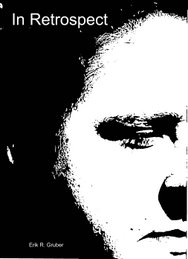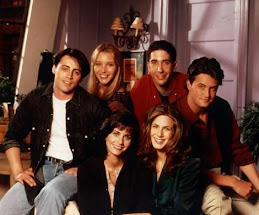Thomas Moore
It’s tough to convince people to care about art. A perception persists that art doesn’t matter; that it is irrelevant in the real world, where real problems and real daily concerns consume our time and energy. We spend most of our time working or sleeping, and at the end of the day most would consider stopping to consider something as seemingly trivial as a painting on a wall or a poem written decades ago a waste.
I disagree.
There are a number of forces at work that are responsible for the decline of the arts. The educational system, due to limited funds and the prioritization of science and math, neglects to emphasize the important role art has played in our history and plays in our everyday lives. This technological emphasis, though well meaning in its efforts to give students a chance to compete in an advancing society, also fails to give students an opportunity to explore different ways of thinking and to express themselves in alternate ways.
Blame can also be placed on modern media. Television and film, which have the potential to be powerful art forms, often reduce themselves to hedonistic sense titillaters (you like that word?). These two mediums reach a greater audience than any other, and therefore are capable of communicating powerful messages. More often then not, however, they fall short. I’ll get to film another day. It is one of my passions, but there is too much to cover in this post (let’s say I’m just as excited about its potential as I am disappointed by its failures).
Let’s take a moment to look at what art could be. Language is limited. I often find myself frustrated by the insufficiency of words to express certain concepts, such as the awe-inspiring nature of God, the life-changing power of love, the vastness of the universe. Even right there, words fell flat.
But art communicates on a level deeper than mere words. It can communicate thoughts, ideas or emotions that would be impossible to put words to, but can only be expressed through the visceral, unspoken experience of viewing a piece of art and understanding through it a piece of humanity.
A powerful example of this is Picasso’s Guernica. Depicting the Nazi bombing of Guernica, Spain during the Spanish Civil War, Guernica captures the suffering, brutality, chaos, death, and helplessness of war without saying a word. Someone who has experienced war could tell us that war is horrific, but the woman, distorted in agony, weeping over the young child in her arms on the left of the mural says just that and so much more.

Art such as this binds us in communal experience. We were not in Guernica on that fateful day, and we can’t claim to physically understand what those people went through. But if we can put ourselves inside of the painting, if we can allow ourselves to become lost in the images and allow ourselves to emotionally, instinctually, and intellectually react, we can share in that experience. By doing so, I believe, we pay our respects to the victims.
Through Guernica, Picasso is bound to the victims as well as whoever views the work, and likewise the viewer is bound to the artist, those that suffered, and to all others that have viewed. This connectedness is not limited by time or geography, by age, vocation, sex, race, or language. Art provides us with a unique opportunity to share in the experiences of the world. I’d say that’s an opportunity worth utilizing.
Thanks for reading.


















6 comments:
I have a harder time with this post. A lot of art doesn't really do anything to me. I have been to the art museums in minnesota and chicago, seen stuff in class (CIFA, Multiple history classes) and i just can't make myself care.
I know this sounds bad, but I really don't care. Maybe that makes me a shallow person, I hope not, but i just do not usually find anything significant to take with me.
I can appreciate a great painting, a sculpture, or a building for its beauty and for the skill that was necessary, but that about it. I don't try and read into anything or make it have some deep meaning or feeling. I take it at face value for what it is and appreciate the skill of the artist.
For me that is enough.
Sorry Gruber, I don't share your enthusiasm for art.
Groobs,
I would say i agree with Pat for the most part with the post. I love art; whether it be paintings, sculptures, etc. But i love it for what it is on the outside. I am not one to dig into it and try and find meening in something that most of the time seems meaningless (to me at least). I mean i looked at that picasso painting for a while and i still don't feel the effects of the bombing, but if i watched a movie on it i think i could get a better taste for what really happened.
One thing i found interesting while looking into Picasso's Guernica was what Picasso said while being pressed on explaining some of the meaning behind the painting. He said, "...this bull is a bull and this horse is a horse... If you give a meaning to certain things in my paintings it may be very true, but it is not my idea to give this meaning. What ideas and conclusions you have got I obtained too, but instinctively, unconsciously. I make the painting for the painting. I paint the objects for what they are." I don't know the credetials of the quote, i just found it to be interesting.
I guess i do just what he was saying at the end and i look at the objects for what they are. I could look all day at art and i probably would never find meaning in a single piece unless it is very obvious. Not only because i don't really care, but also because i just don't get it.
Sometimes i wish i had the passion for art like you and others share; but i just can't find the passion.
Good post none the less.
You are CUTE!
BuhBye
art shmart, your a big fart
I feel you Gruber. I just erased a bunch of stuff I was saying because I'm a little up in the air on this one. Art as it was "back in the day" was a means of communication as well as an art creation. Looking at it from that standpoint, communication has a whole new face, technology has brought us i pods, TV, radio, film and the internet.
Could it be that with so many forms of communication in the hands of anyone that has enough know how to make things happen or to make a buck can communicate in this manner has diluted communication as we know it? And could it be that your frustration with the lack of appreciation of the arts is really a deeper frustration with the multiplicity of communication by anyone and everyone 24/7?
Any thoughts?
I'm digging the extracurricular thoughts on this post. Way to live up to your title, Reader of the Month Joey. I'm impressed by the outside research. I also find that quote to be fascinating. It definitely provides an insight into Picasso's character and a perspective on art from a true artist.
I love that he acknowledged the instinctual nature of art. He paints to paint, and whatever meaning anyone gets is up to their own interpretation. This applies to him as well.
Part of the problem with talking about art, particularly with people who think they know about art, is that many people believe there is a right answer. They believe that there is one, correct meaning behind every work of art. This takes away from the very nature of what art is supposed to be. Art is such a great communicator because it does not limit communication to one interpretation. The meaning of a piece of art is whatever you take it for. It is a gut reaction, it is instinctual.
Most people regard the Mona Lisa as one of the most beautiful paintings ever created. But if I think she looks like a dour old maid that is trying to cover her unhappiness with smugness, nobody has the right to tell me I'm wrong.
Not everyone has an enthusiasm for art, and that's understandable. Imagine the world we'd live in if everyone was trying to become an artist. It'd be chaos, and we'd still be in the stone ages.
And don't worry about finding the "correct" meaning of art, because there simply isn't one.
You make an interesting point, Noah. I think our fast paced, 24/7 world has diluted communication and the importance of patient observation. Art, for me, is a chance to slow down, to silence my cell phone, to be aware of my surroundings, to muse, and to imagine a time when people still wrote letters with quill pens.
Now we're stuck with ttyl.
I think each individual has a pull to one aspect of art. For me it is music. And a lot of times, like JOey and Pat, I don't get it! I met a music rep for BMI a couple months ago at Washington Square. He told me something that has stuck with me ever since. He said, "Music is moods." He went on to tell a story in which he bought Dylan's "JOhn Wesley Harding" record. He brought it home, popped it in, and listened all the way through. From his perception, he didn't get it. It is our state of being emotionally, cognitively, and even intrinsically that will determine our ability to understand and appreciate what an artist has given us. This BMI cat told me that a few years later after a few life lessons, he finally got that Dylan record and its one of his favorites. Music is moods. Art is moods. We are its perceivers. On a sepparate note... As someone who tries to create art myself, I have realized that art is something that is not always created by the artist. I think it can be God given to the artist at a single moment. Some deep cut songs I have recorded I can't even view as my own. They were a time and place only God could have created. So, my fellow Zotians, go find what type of art you most enjoy, and dig deeper. You'll find that it is a timeless enjoyment that sometimes makes sense, and sometimes means absolutely nothing. And everyone, drink a bunch of Pee!
Post a Comment